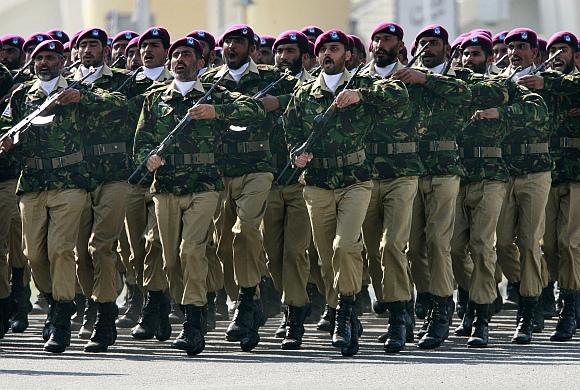
Except for people to people contacts, everything else cultural exchange, sports, trade etc should be conditional on Pakistan giving up its terror strategy. It is time to tell Pakistan that its 'death by thousand cuts' policy will not work, says Colonel (retd) Anil Athale
A recent opinion poll amongst the Pakistani youth showed that 70 percent of the young prefer either religion based 'sharia' regime or military rule. In the recent past even the confirmed votaries of friendship with Pakistani seem at loss in dealing with Pakistan.
The last few months saw most of the Confidence Building Measures come unstuck as a series of actions by Pakistan -- beheading of an Indian soldier on the LoC or passing resolution on hanging of conspirator of attack on Parliament -- riled Indian public opinion.
One major reason for this disappointment is that the Indians have never 'really' understood Pakistani mentality. Here is an attempt to trace the origins of secession by provinces of British India that formed to became a new country called Pakistan.
It is wrong to call 1947 events as partition, the right way to see it as a few provinces breaking away from the mother country. What follows is a politically incorrect but truthful account of birth of Pakistan. For the roots of Pakistani attitude lie in the genesis of that country.
March 23 is celebrated every year as 'Pakistan Day' to commemorate the passing of 'Pakistan Resolution' at Lahore in the Muslim League session. It is also the 'Republic Day' for Pakistan as on this very day in 1956; Pakistan became the world's first 'Islamic Republic'.
Paraphrasing a popular saying, like Rome; Pakistan was not built in a day. There is a history of events that led to this outcome in 1947.
...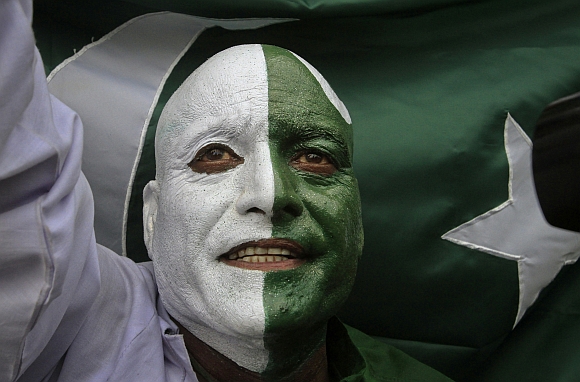
This is an attempt to highlight only some, (certainly not all) events that have left a lasting imprint on present. It is also hoped that this would explain the 'Pakistani DNA' and make Indians keen on friendship with Pakistan understand the reality of a dysfunctional society and state.
Envisaged as 'Homeland for the Subcontinent's Muslims' the demand for Pakistan was rooted in desire for political power for Muslim elites. The popular slogan of 'Islam in danger' was a later invention to garner the support of gullible Muslim masses by using religion.
The roots of Pakistan go back to the 'Simla Delegation' led by Aga Khan consisting of 35 Muslim notables that met the British Viceroy Lord Minto and demanded separate electorate and 50 per cent share in power for the 13 per cent Muslim population due to 'their historical contribution and circumstances of having been the erstwhile 'rulers' of India'.
From there on the demand for 'parity' was the plank of Muslim League. Since 1947 and creation of Pakistan, this that has transformed into competition with India in all spheres and constant harping on 'equality' to the Muslim ummah (community) and not merely equality of individual citizens.
Denial of majority rule is a basic tenet of Pakistani ideology.
This suited the British policy of divide and rule and they supported it to the hilt. According to Kahlid B Sayeed (The Political System of Pakistan), "Pakistan was not the result of either Hindu communalism or British divide and rule but mainly due to Muslim 'separatism'."
But at a time when Britannica ruled the waves and sun never set on the British Empire (a Zimbabwean commented that that was so since even the God did not trust the British in darkness) it was the British machinations that made the impossible creation of Pakistan in a reality. The British parliament had announced in 1945 that India would be granted independence by June 1948.
...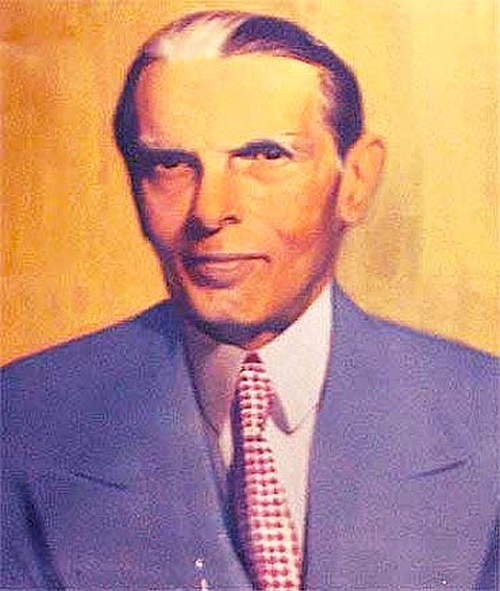
But then suddenly in May 1946 Viceroy Louis Mountbatten announced that the British would leave by August 15, 1947, nearly one year early. No historian has offered an explanation as to why the sudden hurry? According to many observers this haste was partly responsible for the horrors of the partition riots.
Tucked away in the obscure corners of history is an event that could have led to this. The working committee of Muslim League was meeting in Mumbai (then Bombay) in March 1946.
On March 30, during the meeting Mohammed Ali Jinnah collapsed and had to be taken to the Breach Candy Hospital. His personal physician Dr Jal Patel told Jinnah that but for timely evacuation to the hospital, Jinnah would not have survived and advised complete rest.
But the strong-willed Jinnah flouted the doctor's advice and continued his hectic political activity. The Muslim League kept this episode a secret but it is too much to expect that the British did not come to know about it.
Afraid that without Jinnah, the whole Pakistan project might collapse, Mountbatten advanced the date of independence and partition of India. Jinnah died on September 11, 1948.
To his personal physician Colonel Illahi Bax, he confessed "the creation of Pakistan was the biggest blunder of my life." (Report under 'Disclosure by Jinnah's Doctor', The Frontier Post, Peshawar, dated November 26, 1987.)
The Pakistan yearbook describes Pakistan as consisting of 'Arabs, Turks, Afghans, Iranians and others welded together as a cohesive Millat-e-Islamia'. Denial of any link to India or their sub-continental roots is part of Pakistani psyche for last 30 years or so and certainly since the Zia-ul Haq-led Islamisation since 1979.
With the latest anti-Shia fervour, the fact that Jinnah himself was Shia has been obliterated. This despite the fact that his Parsi origin wife lies buried in a Shia graveyard in Mazgaon area of Mumbai. In all official records in Pakistan there is no mention whatsoever of his wife or daughter, it is as if Jinnah was a bachelor.
...
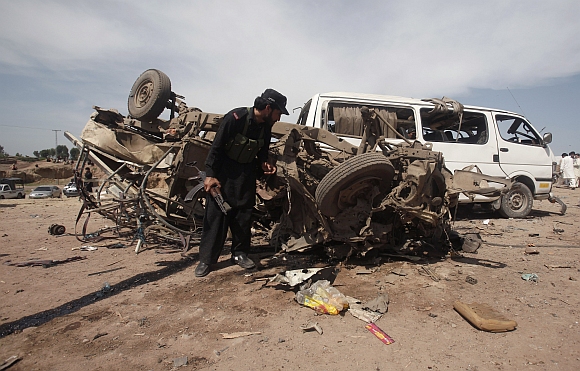
Some other not so subtle changes have been taking place in Pakistan since the 1980s. Persian, the court language of the Mughals has been more or less banished and replaced by Arabic.
Under Saudi influence Pakistan is well on its way to become a Sunni Wahabi state where there is no space for even other Muslim sects, forget about the minority Christians or Hindus (reduced to less than 2 per cent from the original 13).
A very impressive museum of Pakistani heritage called (ironically) 'Lok Virasa' in Islamabad depicts Pakistan as having existed for ever, even before the birth of Islam. All references to shared past with India have been totally obliterated. The museum is a huge draw among Pakistani youngsters.
One can imagine what would be the world view of such brainwashed generation! It has been official policy of Pakistan to deny its sub-continental roots, its history, their forefathers, culture, language and even their genes.
All this has produced a sense of mass paranoia and split personality. The repercussions of this psychological state are to be found in a perpetual cycle of violence.
All these lead to a conclusion that Pakistan is not a normal country. To expect economic relations to dilute this basic hatred is foolish. Neither has people to people contacts done much good.
This does not mean that there are no sensible people in Pakistan, there are many who are sincere in their desire for peace with India.
The problem is that their number is miniscule and they do not wield much clout in the country's establishment.
Ideally India should 'wait out' for Pakistan to make up its mind on kind of relations it wants. But whether we like it or not, it is our immediate neighbour and is armed to teeth with nuclear weapons.
...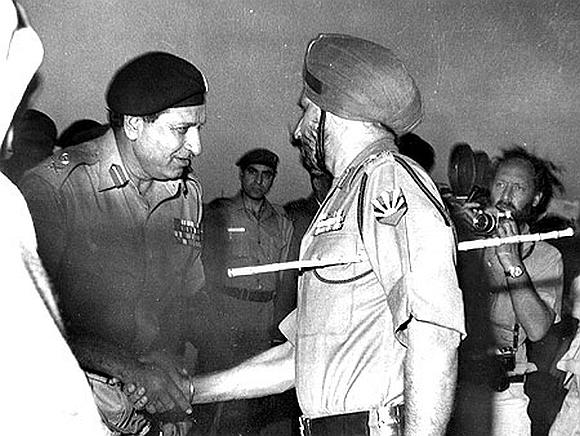
The paramount Indian interest vis a vis Pakistan is to prevent a nuclear war in the subcontinent. It is also a reality that there are many divided families in two countries. India should formulate its policies to address these two issues. Irrespective of Pakistani bad behaviour we must continue nuclear CBMs.
To make Pakistan desist from miscalculating we must also maintain a decisive superiority in nuclear arms and their delivery vehicles. The 'No First Use' doctrine must be modified to state that while India will not be first nor will it be second in use of nuclear weapons.
What this translates into is that we need to draw clear 'red lines' in terms of certain actions of Pakistan like preparatory moves for nuclear strike as a strike itself and trigger Indian 'preventive' nuclear response. In short we have to move from 'deterrence' to nuclear prevention. This is too complicated a subject to be dealt with in this article and will be elaborated elsewhere.
We must also formulate a clear and open visa policy for 'family' visits. These should be granted quickly and without hesitation. But the Indian citizens must be held responsible for the conduct of their Pakistani relatives lest we have 'Tahawwur Rana' like characters using it to help carry out terrorist strikes.
This measure should be unilateral. In addition, since there is a woeful lack of medical facilities in Pakistan, we should also permit medical visas as a humanitarian gesture.
All other forms of contacts, cultural, sports, trade etc should be conditional on Pakistan giving up its terror strategy. It is time to tell Pakistan that its 'death by thousand cuts' policy will not work since India can counter it with just three cuts -- Sindh, Baluchistan and the Northern Areas. We have already shown what a single cut can do in 1971!
For the rest of 'normalisation' of relations let us wait for Pakistan to take the initiative. Else it can continue to run its steel mill in Karachi importing iron ore from Australia and coal from Poland but not import it from India -- if that country wants to continue on its course of economic ruin, it is none of our business....